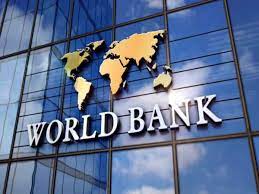
Notwithstanding opposition from developing countries and the US, nations took a step towards establishing a fund on Saturday to assist underprivileged states harmed by climate disasters.
At last year's United Nations climate conference in Egypt, developing country negotiators overcame years of opposition from wealthier nations with a deal to establish a "loss and damage" fund.
However, over the last 11 months, countries have found it difficult to agree on the fund's specifics, like who will pay and where it will be located.
After reaching a standstill in Egypt last month, a special U.N. committee entrusted with implementing the fund convened for a fifth time this week in Abu Dhabi to complete proposals that would be presented to nations when they convene for the COP28 annual climate summit in Dubai in less than four weeks. The fund is intended to be operational by 2024.
The World Bank should act as the fund's trustee and host, the committee, which included representatives from a wide range of geographical locations, decided. This recommendation has created friction and fueled tensions between rich and developing countries.
Developing nations have contended that storing a fund at the World Bank, whose presidents are chosen by the United States, would grant donor nations excessive control over the fund and lead to hefty costs for recipient nations.
It was decided that the World Bank would act as the fund's temporary trustee and host for four years in order to win over all of the nations.
Germany's special ambassador on climate change, Jennifer Morgan, stated in a post on X that Berlin "stands ready to fulfil its responsibility - we're actively working towards contributing to the new fund and assessing options for more structural sources of financing".
Some were not as upbeat.
“It is a sombre day for climate justice, as rich countries turn their backs on vulnerable communities," said Harjeet Singh, head of global political strategy at nonprofit Climate Action Network International.
"Rich countries ... have not only coerced developing nations into accepting the World Bank as the host of the Loss and Damage Fund but have also evaded their duty to lead in providing financial assistance to those communities and countries."
The group did not address whether affluent countries would have a formal financial duty to contribute, but it did recommend that developed countries be urged to keep supporting the fund.
"We regret that the text does not reflect consensus concerning the need for clarity on the voluntary nature of contributions," a U.S. State Department official told the media.
The committee chair rejected an attempt by the United States to include a footnote explaining that any payments to the fund would be optional. The United States protested that denial.
The COP28 talks will be led by Sultan al-Jaber, who expressed his approval of the committee's suggestions and their potential to facilitate an agreement.
(Source:www.newswav.com)
At last year's United Nations climate conference in Egypt, developing country negotiators overcame years of opposition from wealthier nations with a deal to establish a "loss and damage" fund.
However, over the last 11 months, countries have found it difficult to agree on the fund's specifics, like who will pay and where it will be located.
After reaching a standstill in Egypt last month, a special U.N. committee entrusted with implementing the fund convened for a fifth time this week in Abu Dhabi to complete proposals that would be presented to nations when they convene for the COP28 annual climate summit in Dubai in less than four weeks. The fund is intended to be operational by 2024.
The World Bank should act as the fund's trustee and host, the committee, which included representatives from a wide range of geographical locations, decided. This recommendation has created friction and fueled tensions between rich and developing countries.
Developing nations have contended that storing a fund at the World Bank, whose presidents are chosen by the United States, would grant donor nations excessive control over the fund and lead to hefty costs for recipient nations.
It was decided that the World Bank would act as the fund's temporary trustee and host for four years in order to win over all of the nations.
Germany's special ambassador on climate change, Jennifer Morgan, stated in a post on X that Berlin "stands ready to fulfil its responsibility - we're actively working towards contributing to the new fund and assessing options for more structural sources of financing".
Some were not as upbeat.
“It is a sombre day for climate justice, as rich countries turn their backs on vulnerable communities," said Harjeet Singh, head of global political strategy at nonprofit Climate Action Network International.
"Rich countries ... have not only coerced developing nations into accepting the World Bank as the host of the Loss and Damage Fund but have also evaded their duty to lead in providing financial assistance to those communities and countries."
The group did not address whether affluent countries would have a formal financial duty to contribute, but it did recommend that developed countries be urged to keep supporting the fund.
"We regret that the text does not reflect consensus concerning the need for clarity on the voluntary nature of contributions," a U.S. State Department official told the media.
The committee chair rejected an attempt by the United States to include a footnote explaining that any payments to the fund would be optional. The United States protested that denial.
The COP28 talks will be led by Sultan al-Jaber, who expressed his approval of the committee's suggestions and their potential to facilitate an agreement.
(Source:www.newswav.com)





